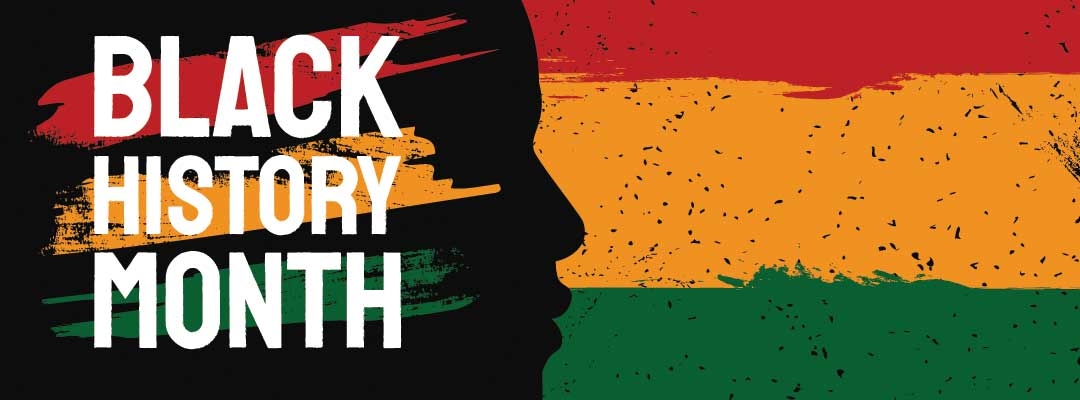It is not by accident that we celebrate Black History Month throughout February.
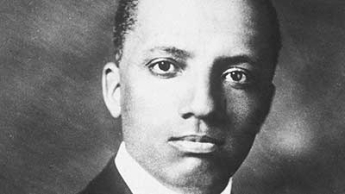
Dr. Carter G. Woodson, known as the Father of Black History and the founder of the Association for the Study of African American Life and History® (ASALH), initiated the celebration of Negro History Week in 1926 during the second week of February. This week coincided with the traditional observances already in place by communities of color, such as celebrating the birthdays of both Frederick Douglass—a famed abolitionist who escaped from slavery—and Abraham Lincoln, who formally abolished slavery. Too bad these two men were born in the shortest month of the year.
According to the ASALH®, Dr. Woodson did not just select that week for these traditions, but to build upon it. Instead of a “study of two great men,” his desire was to make it a study of “a great race.”
During the years since, other important events have led to the acknowledgement of Black History in the United States:
February 1 is National Freedom Day, the anniversary of the approval of the 13th Amendment, which abolished slavery in 1865. Richard R. Wright, who was enslaved and became a civil rights advocate and author, lobbied for the celebration of the day before passing away in 1947.
In June 1948, U.S. Congress by joint resolution authorized President Harry Truman to “proclaim the first day of February of each year as National Freedom Day in commemoration of the signing of the resolution of February 1, 1865.” And although the day is not a federal holiday, President Truman signed Proclamation 2824 to recognize National Freedom Day and urged citizens to pause to contemplate its significance.
The work of ASALH continued, seeking recognition from the federal government for a full month in observance of African American contributions. In February 1976, President Gerald Ford, paying homage to Woodson and ASALH, first established Black History Month by proclaiming: “In the Bicentennial year of our Independence, we can review with admiration the impressive contributions of Black Americans to our national life….[T]o help highlight these achievements, Dr. Carter G. Woodson founded the Association for the Study of Afro-American Life and History. We are grateful to him today for his initiative, and we are richer for the work of his organization.”
In 1986—the first year that Martin Luther King, Jr.’s birthday in January was recognized as a national holiday—the U.S. Congress designated the month of February as National Black History Month. President Ronald Reagan issued Presidential Proclamation 5443, noting that “the foremost purpose of Black History Month is to make all Americans aware of this struggle for freedom and equal opportunity.”
Equal opportunity.
Every year since its inception, the ASALH has developed a theme for Black History Month so that others can focus their attention and learn about the history and achievements of African Americans. This year’s theme highlights Black Resistance and puts a spotlight on how “Black people have sought ways to nurture and protect Black lives, and for autonomy of their physical and intellectual bodies through armed resistance, voluntary emigration, nonviolence, education, literature, sports, media and legislation/politics. Black-led institutions and affiliations have lobbied, litigated, legislated, protested and achieved success.”
Let’s amplify the voices of our Black community and be allies and advocates in their resistance to ongoing oppression and racism—this month, this year, every month, every year.
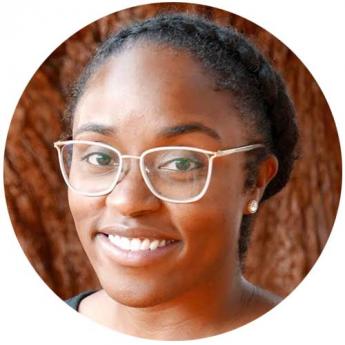
Graduate Adrian Morris, Personal Financial Planning
“Don’t be discouraged because you don’t see yourself amongst the program. Take that as an opportunity to empower yourself and then go and empower the community or the community you are from.” Read more about Adrian.
Get Educated
Black Literature
Reading can often be a perfect way to build your knowledge and hone your critical-thinking skills. You can also learn more about Black contributions and cultures through the many fine nonfiction and fiction writers whose works resound throughout the years.
The following are just a tiny fraction of some great places to get started:
Dr. Luke Wood's Racelighting Series
Nell Irvin Painter’s The History of White People
bell hooks’ Teaching to Transgress
Ibram X. Kendi’s How to Be an Antiracist
Kristina DuRocher’s Raising Racists
Lerone Bennett’s Before the Mayflower
William H. Watkins’ The White Architects of Black Education
African Americans have written copiously during the centuries. You can delve deeper into these rich resources through the Black Caucus of the American Library Association. The organization has a great booklist of the best books for children published in 2021. There are many groups formed to celebrate and encourage African American literature, including The Center for Black Literature at Medgar Evers College, CUNY.
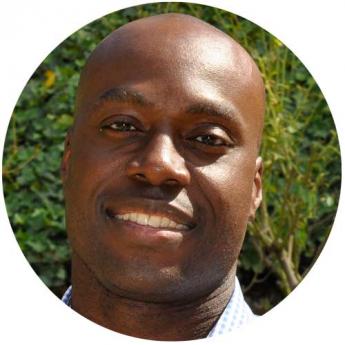
Graduate Toby Atawo, Project Management
“I took my classes online, and there were a few classmates who were also international. I learned a lot from my peers: Many were at the same point in their career as I was. Their experiences helped to nail down the theory we were processing. It also opened my eyes to many other industries and how they applied their project management framework to their projects.” Read more about Toby.
1619 Project
The 1619 Project was launched in 2019 by the Pulitzer Center and The New York Times to explore the legacy of slavery and accentuate the contributions that Blacks make to society. The project offers curricular resources for schools and whomever is interested in learning more about the continuing effects of slavery in our nation.
Listen to “The 1619 Project” podcast by The New York Times while you take an afternoon walk or check it out on Hulu.
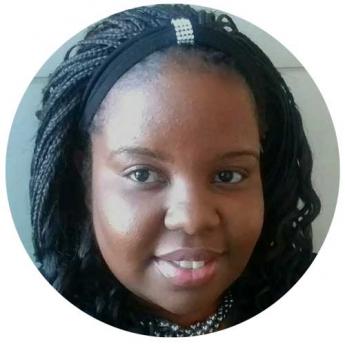
Instructor Sylvia Gayle, Biology of Human Cancer Course
“Teaching at Extension allows me to bridge my own academic and research experience with those who are also interested in understanding—at a molecular level—the biology of cancer. In addition, teaching an online course allows me to interact with and educate a diverse group of students across the country. Every module includes riveting discussion questions that increase discussion among classmates on topics that extend beyond what the textbook offers.” Read more from Sylvia.
Organizational Resources
In addition to the ASALH—which is offering a Black History Month Virtual Festival—there are many organizations that explore and preserve the history of African Americans and people of African ancestry around the world. Here are a few general online resources. There are many local and state historical associations for further research.
- African American History in the National Archives
- BlackPast
- Black History from the Biography Channel
- Black History in Two Minutes (or so)
- Global Black History Timeline from The Guardian
- Visit Black History 101 Mobile Museum in a city by you!
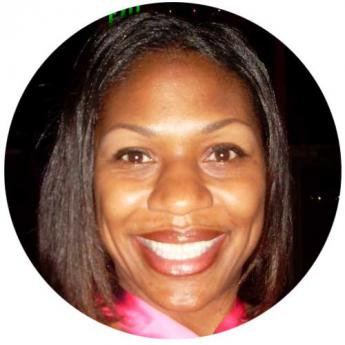
Graduate Suzette Nubie, Regulatory Affairs
“Professionally, having this certificate on my résumé looks great and is definitely value-added to my industry. Personally, I have accomplished a goal while working full time, which is huge! To take the time—primarily on Saturdays—and complete the work is fulfilling. My long-term goal is to transition to regulatory affairs one day, and this is the first step.” Read more about Suzette.
Do Something
During Black History Month and throughout the year, reflect on more than 400 years of Black history and heritage in national parks and communities across the country.
Here in the Bay Area, there are notable places to visit and many events to attend where you can seek out stories and histories that may often be overlooked or not recognized as significant history because it is Black history.
Find special places, historic moments and personal journeys that contribute to conversations about Black representation, identity and diversity in our nation’s history and to today. Support Black-owned businesses, contribute to Black nonprofits, read Black literature, recognize Black artists, learn about prominent Black leaders in your community and research Black history within your area.
This February, take these ideas to heart and practice these tips as you honor Black History Month and year-round.
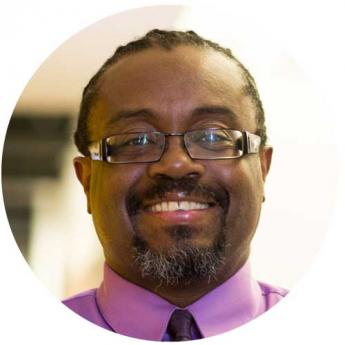
Graduate John Edwards, LCSW
John Edwards, LCSW, is a psychotherapist and graduate of the Professional Program in Eating and Weight Disorders. He currently has his own private practice. Enrolling in the program, he wanted to work more closely with the LGBT community and bring his perspective as a gay man to help tackle these issues. "I wanted to get more specific training. As a direct result of the program, I feel more competent." Read John’s story.
Anywhere You Are
- Support Black-owned businesses; here’s an interesting list from Good Housekeeping.
- Donate to charities that support anti-racism. Here’s a list to start off with.
- Attend any one of many online events hosted by National Museum of African American History and Culture (NMAAHC).
- Participate in your company’s DEI, anti-racism and allyship events and courses.
- If you’re a business owner, sign the Equal Pay Pledge!
- Check out SURJ (Standing Up For Racial Justice).
In the Bay Area
- Visit Museum of the African Diaspora (MoAD) in San Francisco
- Visit African American Museum and Library at Oakland
- Sign up for one or more of Oakland’s Black History Month Events
- February 26: Black Joy Parade in Oakland
- February 25: Black History Month Hike at Lake Chabot
- February 5: Black Joy On Wheels ride
- Explore the Black Panther Party’s history in Oakland
Have an item you’d like to add? Let us know in the comments below!
